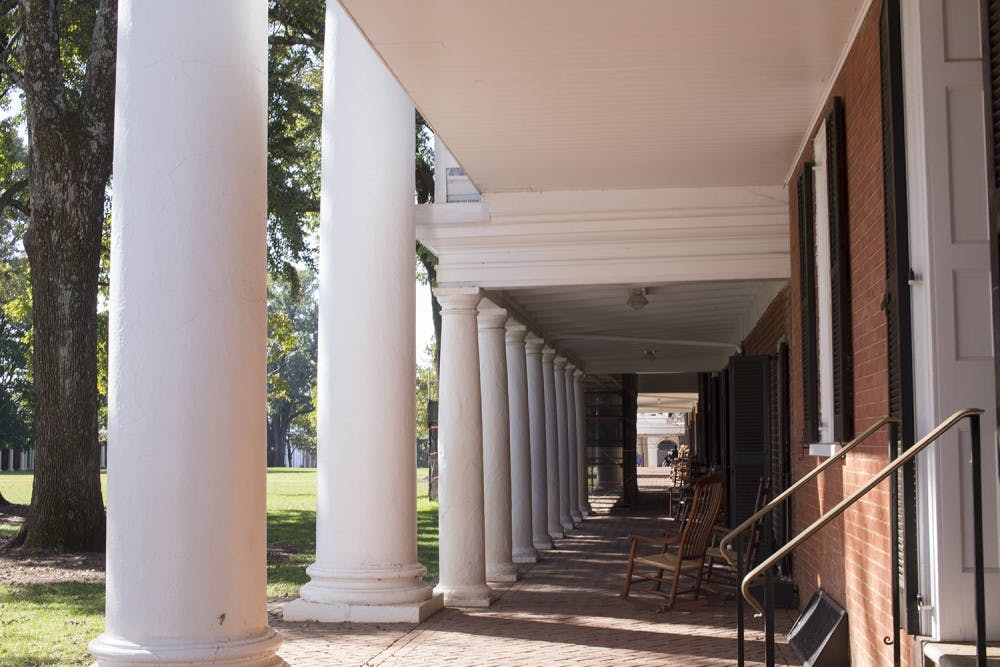Following an increase of bias-motivated incidents on Grounds this semester, students received emails from University officials and student leaders. Both encouraged students to remain civil during what University President Teresa Sullivan described as a “divisive campaign season.”
Student Council President Emily Lodge, a fourth-year Batten student, encouraged the University community to “come together” and “move forward” after the results of the Nov. 8 presidential election are announced.
“Our community is filled with a spectrum of perspectives, but we are united in our humanity,” Lodge said in an email to the student body. “Making members of our community feel unwelcome or threatened because of their views will not be tolerated.”
While “mud-slinging” and “name-calling” have existed in presidential elections for centuries, Assoc. Politics Prof. Colin Bird said the difference lies in people’s ideas about civility.
“My own anxiety about this election is not so much the actual things that people have said or not said or done and not done have differed from what people have said and not said in previous elections,” Bird said. “My worry is that people’s understanding of what counts as civil and uncivil has changed in some way this time around.”
During this election cycle, people have been more willing to relax certain norms about civility and accept some of the comments the candidates have made in defense of democratic freedom, Bird said.
“People on the Trump side in particular have often defended some of the things he’s said — and if not actively defended, failed to adequately condemn — some of the things that have been said because they think, ‘Look, if you’re really a Democrat, if you care about what people actually feel, then you ought to welcome the fact that people are actually expressing their true feelings,’” Bird said.
Bird said he believes this election will have a lasting effect on what people view as acceptable and civil in the future, but the extent of those effects will depend on the overall outcome of the election.
“I think the Trump campaign in particular has let some genies out of the bottle that will be hard to put back in,” Bird said. “On the other hand, I also think that if Trump loses, which still looks like the most likely outcome, I suspect that these long-term effects will turn out to be less significant than one might fear.”
University officials have partly attributed the bias-motivated incidents of this semester to the “tone and tenor” of the presidential election, as mentioned in an email sent to students from Marcus Martin, vice president and chief officer for diversity and equity, University Dean of Students Allen Groves and Catherine Spear, assistant vice president at the Office for Equal Opportunity and Civil Rights.
Bird said the University’s suggestion of a connection between the campaign and the bias related events on Grounds was reasonable.
“It seems to me that the University is completely correct to see a causal connection between the tenor of the campaign, which is one thing, and the more localized abuse and mistreatment that we’ve seen around Grounds,” Bird said.
The overall reactions on Election Night, Bird said, depend on not only the outcome, but on how close the race ultimately ends up being.
“If the outcome is a relatively comfortable victory for Clinton, then I think we’ll get a lot of angry frustration for a period but I think it will fairly quickly die down,” Bird said.
However, if Trump wins, Bird expects the reactions may be similar to those of the Brexit campaign, at the end of which the United Kingdom voted to leave the European Union. In that instance, there was a spike in incivility in which immigrants and minorities were targeted with hate and abuse.
Regardless of the election’s outcome, Sullivan reminded the University that a civil society begins with civil individuals.
“I encourage every member of the U.Va. community to place our common bonds above our political differences in the days ahead,” Sullivan said. “As individuals we will always have our differences, but our capacity to respect and even celebrate those differences is essential to the cohesiveness of our communities and the integrity of our democracy.”







